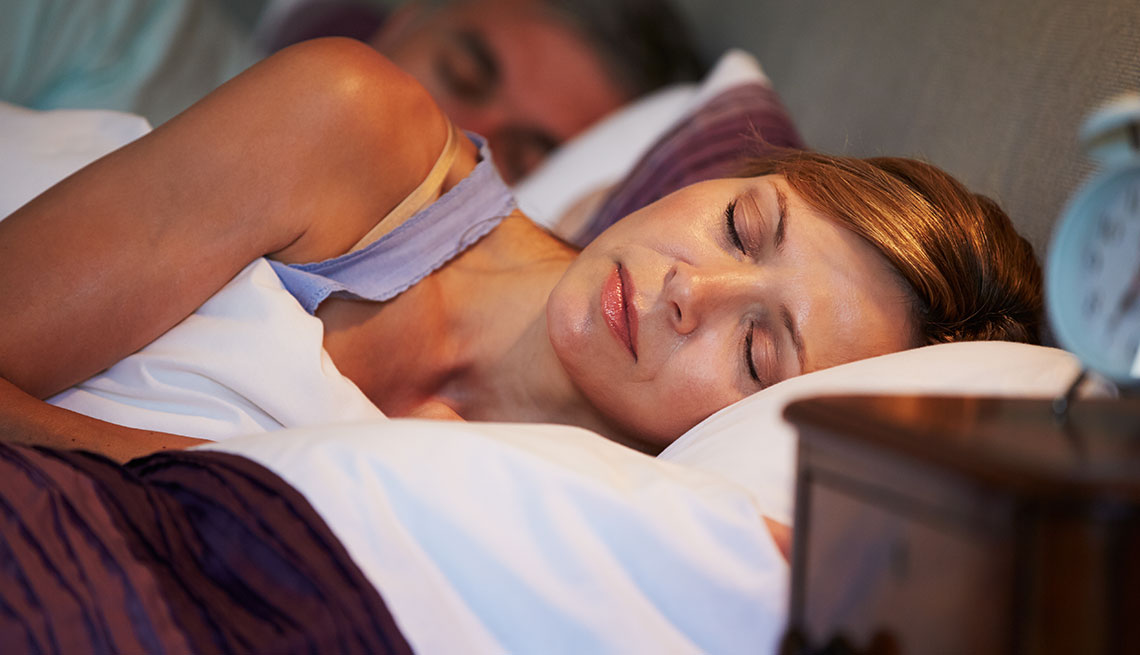AARP Hearing Center
The work of three Americans who shared the Nobel Prize in physiology or medicine last month has practical applications for those who want to sleep better, lose weight or safeguard themselves from a variety of diseases. While the scientists delved into the genetic underpinnings of our circadian rhythms, their work — and the growing field of chronobiology that they helped create — is rich in body clock-driven takeaways for your health. A look at some of the research:
Rise with the sun. Studies have shown that early-to-bed, early-to-rise types often enjoy the most natural and productive slumber. That's because our bodies take the ebb and flow of natural light as a cue to either boost or reduce levels of melatonin, the “sleep hormone.” And melatonin starts to increase at sunset — a few hours ahead of when it will cause us to feel drowsy. Following that rhythm would mean a relatively early bedtime.
Dim the lights at night. Researchers have long suspected that too much exposure to artificial light in the evening throws off hormone production in a way that hinders shut-eye. If you feel like you're on a late-to-bed schedule because you spend too much time with your smartphone or tablet at night, consider a kind of detox. A study released this year from the University of Colorado Boulder showed that just two days of camping in screen-free, all-natural light, in any season, was enough to reset subjects’ clocks to closely mirror a sunset- and sunrise-influenced sleep cycle. Based on their study, the researchers suggest — if not an overnight outdoor — increasing morning exposure to sunlight (taking a 7 a.m. walk, for instance) and reducing nighttime exposure to artificial light for better sleep.
Eat on a schedule. There’s also developing evidence that syncing meal times to your inner clock can help you lose weight. A recent study from the University of Alabama at Birmingham is one of the first to show how restricting when you eat — dining only between 8 a.m. and 2 p.m. in their test — might help you control your appetite and better metabolize fat. But beyond losing weight, there’s evidence that eating at set times offers protection against certain diseases. In January, the American Heart Association issued a scientific statement warning that disrupting circadian rhythms by skipping breakfast or eating late at night, for example, could increase your risk of diabetes or heart disease (although they note that more research is needed to understand why).
Count your cocktails. The clock in your liver controls functions such as when energy is stockpiled or released, or how often your system gets a detox. Research has shown that the liver's rhythm can get thrown off if you have one too many alcoholic drinks, combined with a change in your sleep schedule. One study showed how two-hour alterations in sleep patterns, plus two to four glasses of wine, were linked over time to an increased risk of alcoholic liver disease in shift workers (whom research has shown tend to also suffer other serious maladies due to a daily schedule that goes against their body clocks). Experts say that avoiding binge-drinking and not going to bed more than two hours beyond your normal bedtime will help you get through the holidays (or anytime, for that matter) with your liver function intact.
Reign in your weekend. Just catching up on sleep on the weekends can upset the delicate balance of your circadian rhythms, leading to what researchers call “social jet lag,” or the Monday morning equivalent of feeling awful when your body struggles to adapt to a new time zone. Even eating out late on a Saturday might mess with your clock. One study found that when rodents ate during what had been their usual sleep time, they gained more weight than the mice fed at the normal time.


































































